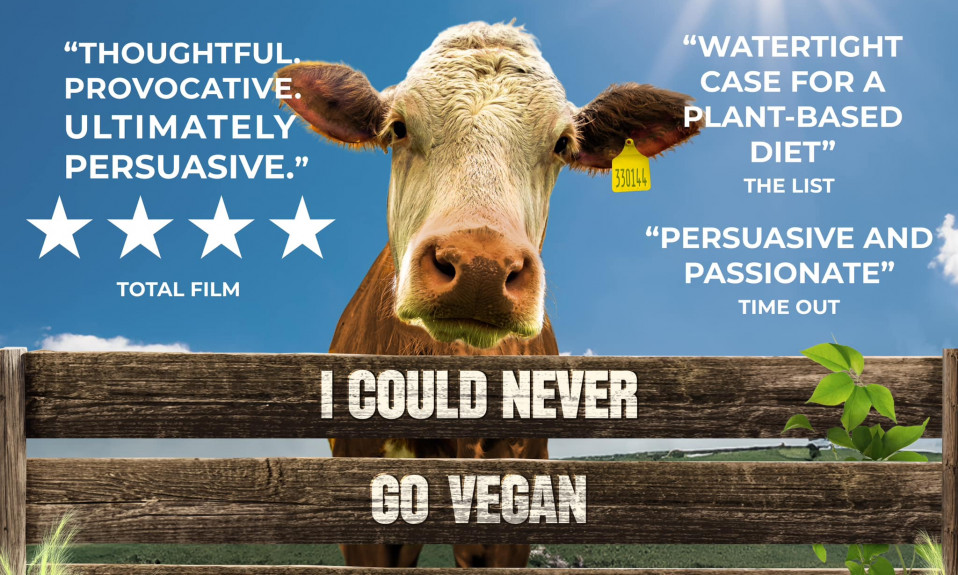Christspiracy explores religious and spiritual institutions’ place in the world’s meat and adjacent industries and whether religion and veganism are compatible. Can it change minds? Let’s see.
Synopsis
Is there a spiritual way to kill an animal? This question inspires Kip Andersen and Kameron Waters to investigate what major world religions think about the topic. But upon discovering a disconnect between what organised religious representatives say about killing animals and their religious texts they begin talking to scholars and vegan activists to discover the reasons behind it, its impact and if change is possible.
What Did I Like?
Christspiracy’s purpose is simple: convince people (religious or not) to interrogate their views on eating meat and industries that kill animals. As an atheist non-vegan, I think the film does a decent job of engaging in good faith with major religions. Providing enough reasonable arguments for why supporting industrial animal slaughter is antithetical to doctrines that favour compassion for living beings.
It also shows how organised religion isn’t necessarily reflective of its members’ views by showing how spiritual leaders can alter their messages in service of capital and hegemonic power structures. This theme is furthered by the film highlighting other causes that animal rights intersect with. Whether it’s immigrants and prisoners forced into distressing positions killing animals because of their legal status, indigenous people being forced off their lands by deforestation or toxic industrial chemicals affecting leather workers and others because of workplace policy. Each of these struggles is linked to the devaluing of life (human and animal) in favour of industry profits. But the film argues a better world is possible if animal rights are part of the struggle for justice. Because if there are humane alternatives and humans are more intelligent than animals we should try to do better. For ourselves, animals and nature.
There is also great variety in the film’s content. The use of interviewees, animation and investigation sections make for a continually interesting watch that engagingly showcases the film’s thesis.
What Did I Not Like?
Apart from the film’s variety in form, there isn’t much to appreciate about Christspiracy’s presentation. The camera work and music are mostly generic and unremarkable, serving merely as vehicles to impart its message. This isn’t necessarily a bad thing, but it leaves little to appreciate if the message doesn’t engage viewers.
Additionally, the film’s conspiracy angle adds little to the overall experience. The narration and overly serious music in several segments feel too melodramatic to be taken seriously. Especially compared to the realness of the film’s investigative direct action segments. It feels like a desperate attempt to encourage engagement.
Also I feel the film makes major stumbles regarding the information it presents.
Difficult Discussion
Despite Christspiracy mentioning these concerns the film still feels like it’s tokenizing certain cultures (particularly indigenous peoples) to show them as alternatives to practices endorsed by major religious spokespeople and making them feel like pawns in a game rather than people. The film should have stuck to analysing the diverse attitudes within the major religions or provided space to fully explore the cultures featured.
Also, the film specifically highlights Israel’s high vegan population as a compassionate transformation and a positive for the vegan movement. But considering Israel’s government has used its vegan reputation to vegan-wash crimes against Palestinians, not disclosing this information, particularly now, when it is potentially conducting genocide and ecocide in Gaza, killing humans and animals, feels irresponsible for a film about fighting injustice.
Finally, one segment centres around Holocaust comparisons to factory farming. Although Holocaust survivor Alex Hershaft’s lived experience informed his views expressed in the film, the film’s brief use of his sentiments with little else said feels like another culture’s pain being used for expedient shock value – which feels very insensitive.
Conclusion
Christspiracy is frustrating. Its good central premise, some compelling material and variety had the potential to make a truly impactful documentary. However, it’s dragged down by a lack of unique production work which fails to make it stand out and a plot conceit that only serves to create artificial tension. Plus the lack of care given to some of its material has the potential to harmfully impact different cultures.
Rating:  (2 / 5)
(2 / 5)














